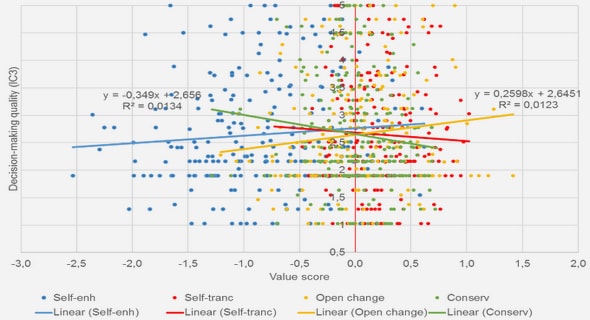Get Complete Project Material File(s) Now! »
Chapter 3 Research Methodology
This chapter is organised into the following five sections: (1) research design, (2) sample recruitment procedures and ethical considerations, (3) participant characteristics, (4) measures and data collection procedures, and (5) data analysis strategy.
Research design
As Sayer (1992, p. 4) argues, the choice of a research method for any study must be ―appropriate to the nature of the object under the study and the purpose and expectation of the study‖. Given that the purpose of this study was to explore a relatively under-researched topic (i.e., the current parenting styles and practices of Korean immigrant parents of children aged between 6 and 10, their children‘s behavioural adjustment, and the influence of parental acculturation on parenting and child behaviour), and to obtain a better understanding of the parenting experiences of Korean immigrant parents, a mixed methods design using both quantitative and qualitative approaches seemed an appropriate approach to answer the research questions. In mixing methods, choices have to be made as to the sequence and relative priority of methods (Johnson & Onwuegbuzie, 2004). In this study, data collection was sequential with a quantitative survey data administered before qualitatively-analysed interviews.
In analysing the data, quantitative data was collected and analysed first, followed by qualitative data.
For the purpose of the study, a cross-sectional design was used. A fixed-format, self-report survey analysed with causal-correlational statistical methods was used to collect data on parenting styles and practices, parental perceptions of child behaviour, parental acculturation, and socioeconomic status and family background variables. The survey data were used to generate answers to the research questions and to test hypotheses about Korean immigrant parents‘ perceptions of their parenting and their children‘s behavioural adjustment, and relationships between parenting, child behaviour, and acculturation. The major contribution of this thesis is the survey results, with contrasts between mothers and fathers across whole families, in the same families and between geese mothers and mothers from two-parent families.
Qualitative data were collected from parent interviews to explore the parenting challenges and experiences of Korean immigrant parents and to identify the unique parenting challenges faced by Korean geese mothers and their strengths in the parenting role. Due to resource constraints and the requirement of voluntary participation, the survey data could not be used for selection of interview participants; however, all interviewees had completed the survey. Consequently, the two methods are reported separately. Although the qualitative questions addressed different and complementary issues to the survey questionnaire, relevant interview data are used to illustrate and expand on the questionnaire results.
―All research involves ethical issues because as a rule, it requires the collection of data from people, and about people‖ (Punch, 2005, p. 34). This is true because in any research, it is possible to inadvertently cause harm to participants. The major ethical issues in this study focused on ensuring the privacy and safety of the participants. All procedures were disclosed to and approved by the University of Auckland Human Participants Ethics Committee (HPEC ref. #2010/559). A copy of the Participant Information Sheet and Consent Form can be found in Appendices G, H, I, and J.
Participant recruitment
Participants were recruited within the greater metropolitan area of Auckland since, of the 30,792 Koreans in New Zealand, 70% live in the Auckland region (Yoon & Choe, 2007). This study used non-random, purposive sampling; thus, participants were recruited from Korean immigrant parents whose children, aged between six and ten, attended primary schools in Auckland, New Zealand. Since the elements of the population are selected arbitrarily and according to certain characteristics, non-random sampling does not allow the estimation of sampling errors; there is no statistical way to assess the validity of results of non-random samples (Garson, 2002). Moreover, the data that is collected via non-random, non-probability methods usually lead to more or less biased estimates. However, given the achieved sample size, the results of this study are sufficiently robust to provide preliminary answers to the research questions.
After receiving ethics approval from the UAHPEC in January 2010, the researcher took a number of steps to recruit participants. As a method of identifying the potential participants, the researcher first contacted Auckland-based Korean church pastors, Korean language school principals, advisors of English language schools, and the president of the Korean Single Mothers Support Group (KSMSG, a non-profit organisation situated in Te Atatu South, Auckland) to recruit parents and schedule visits to explain the study and to distribute recruitment materials.
Recruiting through churches is especially warranted for Korean immigrants in New Zealand. In the Auckland region, there are approximately 150 Korean ethnic churches (Korea Town, June, 2013). This means that there is one church per 140 Koreans in the Auckland region. Nearly all Korean immigrants in New Zealand are affiliated with Korean ethnic churches. Of the 30,792 Korean immigrants in New Zealand, about 70% identified themselves as Christians and about 90% of them attended church regularly (Yoon & Choe, 2007). The Korean ethnic churches serve important functions for many Korean migrants in New Zealand and the Korean community as a whole. It is believed that Korean immigrants‘ active participation in the ethnic church serves a range of functions, including meeting religious and spiritual needs, offering social-psychological support, providing a source of economic assistance, information on business opportunities, and educational resources for immigrants and their families (Chang et al., 2006). Korean ethnic churches, therefore, serve as important social institutions for Korean immigrants and Korean church networks make it easier for Koreans to make a living, particularly for newly arrived immigrants (Chang et al., 2006). Hence, sampling through religious organisations does not bias the sample relative to the population.
In accordance with HPEC requirements, the researcher did not directly approach potential participants. The church pastors, advisors of English language schools, presidents of the Korean language schools, and the president of the KSMSG distributed invitations and the questionnaire package via post on behalf of the researcher. A number of announcements about the study were made by the church ministers at several Korean churches in Auckland during the ‗announcements‘ period at the end of the Sunday service. Parents were asked to take the questionnaires home to complete and return them, with no personal identifiers, in self-addressed, stamped envelopes to the researcher.
Chapter One: Introduction
1.1 Why study Korean-New Zealanders? What is unique about them within the New Zealand context?
1.2 Rationale of the thesis
1.3 Structure of the thesis
Chapter Two: Literature review
2.1 Background: Korean immigrant parents in New Zealand
2.2 Confucianism Influences on the Traditional Korean Family
2.3 Parenting styles in Western cultures
2.4 Studies of Asian and Korean Immigrant families
2.5 Parenting, acculturation, and Korean immigrant children‘s behavioural adjustment
2.6 Parenting Challenges
2.7 Summary of the literature and aims of the present research
2.8 Research questions and hypotheses
Chapter Three: Research methodology
3.1 Research design
3.2 Participant recruitment
3.3 Participant characteristics
3.4 Measures
3.5 Parent interviews
3.6 Analytic strategy
Chapter Four: Examination of the construct validity of the scales
4.1 Parenting Styles and Dimensions Questionnaire: Authoritarian Parenting
4.2 Parenting Styles and Dimensions Questionnaire: Authoritative Parenting
4.3 Parenting practices emphasised in Korea
4.4 Strengths and Difficulties Questionnaire (SDQ)
4.5 Suinn-Lew Asian Self-Identity Acculturation (SL-ASIA)
Chapter Five: Korean immigrant parenting practices, acculturation, and child behaviour in New Zealand: Analysis of a self-reported survey
5.1 Research question 1
5.2 Research question 2
5.3 Research question 3
5.4 Research question 4
5.5 Research question 5
5.6 Research question 6
5.7 Research question 7
5.8 Research question 8
5.9 Summary of the descriptive statistics findings
Chapter Six: Parent interview findings
6.1 Topic: Parenting experiences of Korean immigrant parents
6.2 Topic: Parenting challenges faced by Korean immigrant parents
6.3 Topic: Unique challenges experienced by geese/ single parents and their strengths in this parenting role
6.4 Topic: Recommendations on successful childrearing strategies for new Korean immigrants
6.5 Summary of the interview findings
Chapter Seven: Discussion
7.1 Maternal and paternal parenting styles of Korean immigrant parents in New Zealand
7.2 Parenting practices emphasised in Korea
7.3 Associations between authoritative parenting and socioeconomic status
7.4 Associations between acculturation and Korean parenting practices
7.5 Korean immigrant mothers‘ and fathers‘ perceptions of their children‘s behavioural strengths and difficulties
7.6 Relationships between parenting styles, Korean parenting practices, and child behavioural difficulties and prosocial behaviour
7.7 Relationships between acculturation, parenting style, Korean parenting practices and children‘s behavioural difficulties and prosocial behaviour
7.8 Parenting experiences of Korean immigrant parents
7.9 Implications for parenting practice
7.10 Limitations and future recommendations
7.11 Contributions of the thesis
7.12 Conclusions
GET THE COMPLETE PROJECT
The child rearing practices of Korean immigrant parents in New Zealand


